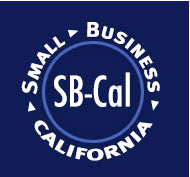As we come to the closing of 2013 and I think about our accomplishments this year, I look upon our last
year's success to see our growth. This year we have continued to advocate and
assist small businesses throughout CA. We hope you find these emails to be of
interest and we hope you all renew or join and tell other businesses owners and
friends about Small Business California!
Accomplishments 2012
Small Business California (SBC) completed its 8th
annual survey of small business issues. There were 630 respondents and every
county in California was represented. The top six issues were cost of
healthcare, quality of public education, small business regulations, state
infrastructure, access to capital, and state taxes.
SBC and the San Francisco Small Business Commission held a
meeting in San Francisco about the new legislation creating B corps in
California. There were 100 small businesses and Assemblyman Jared Huffman, the
author of the legislature, discussed how this will benefit California small
businesses.
SBC hosted a meeting in LA with 20 small businesses and
under Secretary of Commerce Eric Hirschhorn regarding export controls. The
purpose was for the Under Secretary to hear from small businesses how export
regulations can be streamlined.
SBC hosted a meeting along with Elizabeth Echols, regional
director of Small Business Administration, Christine Baker the head of
California Department of Industrial Relations (DIR) and Joan Woodward from Travelers
Insurance Company. Topics discussed were the foundation of DIR, what the SBA is
doing for small businesses, especially in the area of access to capital and how
Travelers is trying to help small business to disaster planning. There were 95
small businesses in attendance.
Worked closely with jobs and economic Development Committee
in an economic development strategy for California small business.
Provided information and risk management techniques to
protect California small businesses from cyber-attacks.
SBC working with Cal OSHA and State Farm developed a paper
helping small businesses comply with the Injury and Illness Prevention Plan
requirement. A meeting was held with small businesses in Oakland rolling out
the plan.
SBC continues to work with Covered California and the
California Endowment Foundation to get information on the Affordable Care Act
out to small businesses around California. To that extent, emails are sent
frequently to about 2000 small businesses around the state and presentations
were made to small business around the state.
SBC provided information about AB 863 which reformed workers
compensation in California. Presentations were made to Industrial Claims
Association, Association of Workers Compensation Professionals, California
Metals Coalition and the California Educational Forum.
Legislation
SB 863 – SBC supported this and brought together 24
associations. The bill was signed by the Governor and attended the signing
events with the Governor in San Diego and Burbank.
AB 2408 – SBC strongly opposed the bill which would have
eliminated the net operating loss carry back. SBC brought together 25
associations also opposing this bill. It did not get through the legislation.
SB 323 – This bill repealed the Beverly-Killea Limited
Liability Act and put in place the Uniform Limited Liability Act. SBC got the
author to amend the bill putting in place a grandfather clause which eliminated
the need for about 604,000 LLCs from hiring an attorney to change their bylaws.
The bill with amendments was signed by the Governor.
AB 1099 – This bill which provides that a regulation or
order of repeal is effective on specified dates. It required the office of
administration law to make a free copy of the full text of the Code of
Regulations available on the internet. This bill was signed by the Governor.
SB 1510 – SBC sponsored this bill which modified the
definition under the small business Procurement and Contract Act, to include
additional conditions under which a certified small business or microbusiness
is deemed to perform a commercially useful function.
-----------------------
Attention
those in the food business in SoCal:
Join CAMEO at our December 3rd Women's Symposium at the Los Angeles Federal Reserve.
It's going to be a great event - they've confirmed Evan Kleiman from KCRW's
Good Food and Liza Braude-Glidden (photo left), Co-Founder and Creative
Director of Beanfields Bean and Rice Chips as their keynotes!
Learn more and
register: Download a flyer
Scott Hauge
President
Small Business
California
2311 Taraval Street
San Francisco, CA 94116
shauge@cal-insure.com
415-680-2188







